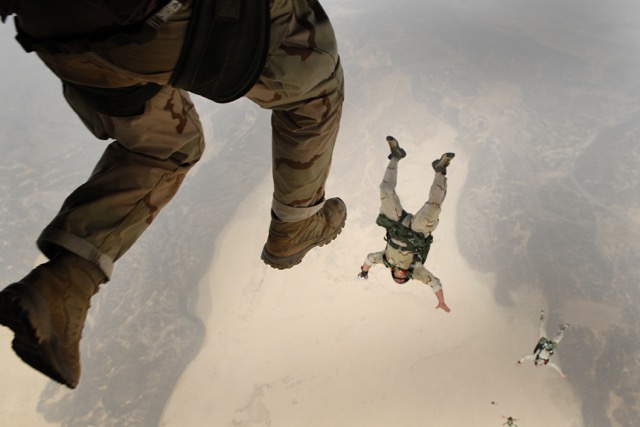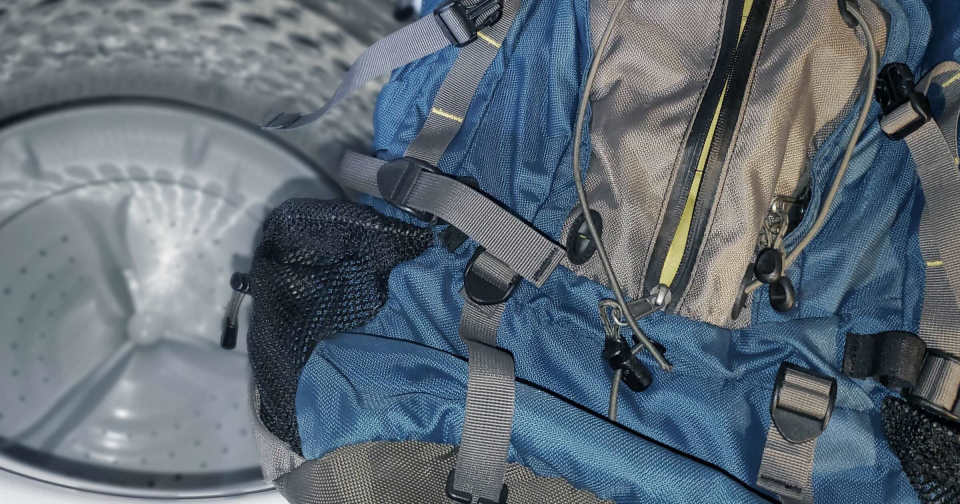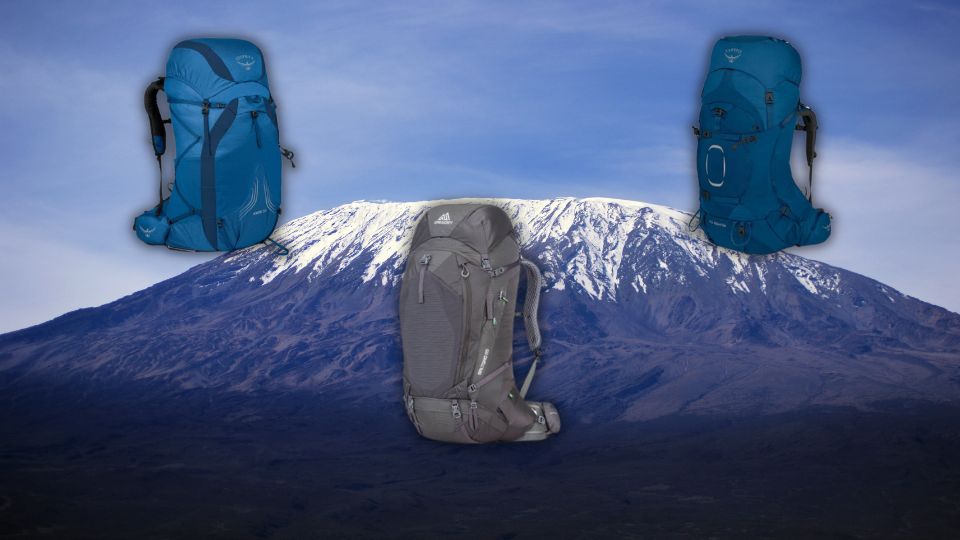If you’ve ever wondered how it feels to jump out of a perfectly good airplane and plunge towards the earth at breathtaking speeds, you’ve come to the right place. We will answer some of the most common questions asked by first-time skydivers: What does skydiving feel like? Do you feel your stomach drop when skydiving? Is skydiving painful? Does it feel like falling? So, if you’re ready to take a closer look into the adrenaline-pumping world of skydiving, let’s dive right in and explore the sensations and experiences awaiting you!
Introduction
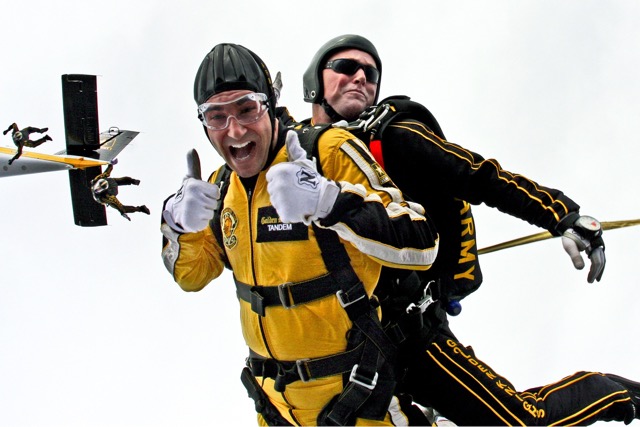
Skydiving is an exhilarating and thrilling experience that provides a unique perspective on the world around us. The feeling of uncontrollable excitement mixed with a hint of fear is unmatched by any other activity.
When you first jump out of the plane, there is a moment of complete weightlessness as you defy gravity and freefall through the sky. Your body is suspended in mid-air, and it feels as if time has temporarily stood still. As you begin to descend, you can feel the rush of wind against your face and body, creating a sensory overload that is both exhilarating and intense.
As you continue your descent, you might experience a sensation of your stomach dropping. This feeling is similar to what you might experience on a roller coaster or during a sudden drop in an elevator. It is completely normal and adds to the adrenaline rush that skydiving provides.
However, it is important to note that the feeling of your stomach dropping is fleeting and quickly subsides as you adjust to the sensation of freefall. Your body starts to adapt, and you become more focused on the incredible views around you rather than any physical discomfort.
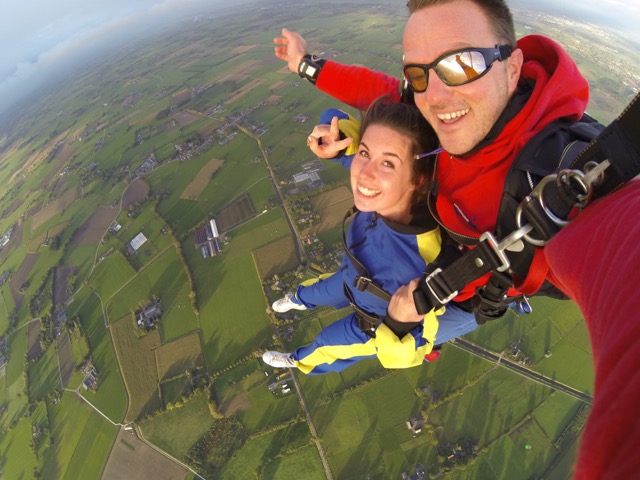
One common misconception about skydiving is that it feels like falling. While the initial moments of freefall might resemble the sensation of falling, the overall experience is much different. Unlike falling, where you have a sense of descent and lack of control, skydiving feels more like floating or flying through the air.
The rush of adrenaline and the feeling of weightlessness combined with the breathtaking beauty of the surrounding landscape create an experience that is truly one-of-a-kind. It gives you a unique perspective and appreciation for the world below.
| Pros | Cons |
|---|---|
| 1. Adrenaline rush: Skydiving offers an unparalleled adrenaline rush that leaves you feeling invigorated and alive. | 1. Fear: Skydiving can be intimidating and scary, especially for first-time jumpers. |
| 2. Sense of accomplishment: Conquering your fears and successfully completing a skydive gives you a tremendous sense of accomplishment. | 2. Expensive: Skydiving can be a costly hobby, with the price of jumps, equipment, and training. |
| 3. Stunning views: Skydiving allows you to witness breathtaking views from a perspective that few people get to experience. | 3. Weather-dependent: Skydiving is heavily dependent on weather conditions. If conditions are not suitable, your jump may be cancelled or delayed. |
Do You Feel Your Stomach Drop When Skydiving?
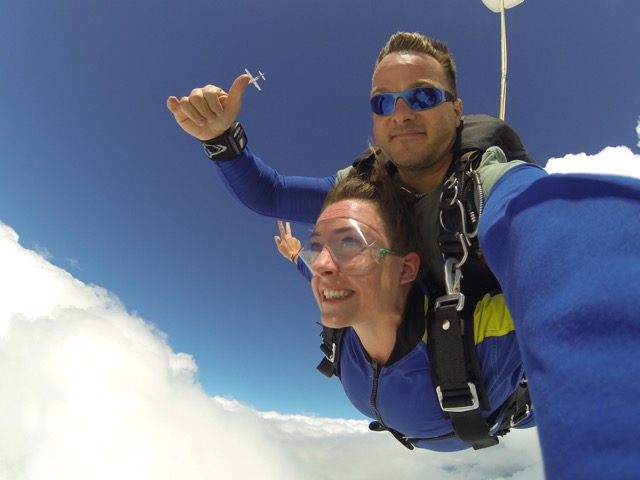
Skydiving is an exhilarating and thrilling adventure that many people dream of experiencing at least once in their lives. It offers a unique opportunity to feel a range of intense emotions and sensations as you leap out of a plane and freefall through the sky. One question that often comes to mind when considering skydiving is whether you will feel your stomach drop during the descent. Let’s explore this intriguing aspect of skydiving and uncover the truth behind the stomach-dropping sensation.
When you first take the leap and begin your descent into the open air, there is a brief moment of weightlessness that may give you the feeling of your stomach floating. This sensation occurs because your body is in freefall, and the gravitational force is no longer pulling on your stomach as it normally would when you’re standing on the ground. In a way, it can make you feel like you’re on a roller coaster, with a slight “butterflies in your stomach” sensation.
However, as you continue to fall and your body adjusts to the speed and sensation of the freefall, the feeling of your stomach dropping tends to fade away. This is because your body adapts to the new environment and the initial adrenaline rush subsides. As the descent becomes more stable, you might even experience a sense of calm and peace while taking in the breathtaking views around you.
How Painful Is Skydiving?
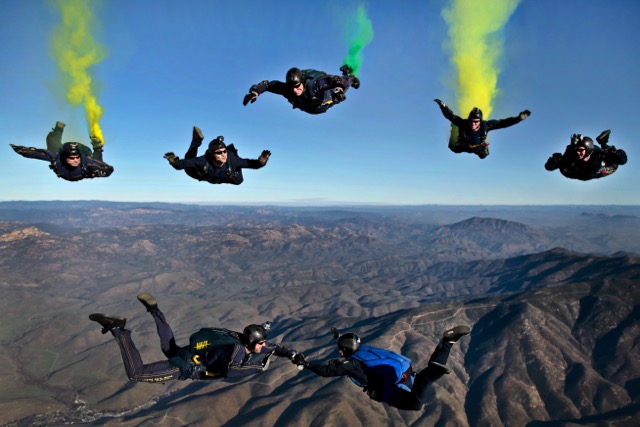
Skydiving is an exhilarating and adrenaline-pumping experience that many people dream of trying at least once in their lives. It involves jumping out of a perfectly good airplane and free-falling through the sky before finally deploying a parachute and descending safely to the ground. However, one question that often comes to mind is, “How painful is skydiving?”
Firstly, it’s important to understand that skydiving itself is not inherently painful. In fact, the sensation of free-falling can be described as more exhilarating than painful. As you leap out of the plane and start descending through the air at high speeds, you may experience a rush of adrenaline and a surge of excitement. The wind rushing past your body creates a unique sensation that is unlike anything you’ve ever felt before. It’s a feeling of complete freedom and weightlessness as you fly through the sky.
That being said, there are certain factors that can contribute to potential discomfort during a skydive. One common sensation that some people may perceive as pain is the pressure on their body caused by the wind resistance. As you fall through the air, the force of the wind can cause your body to momentarily feel compressed or pushed back. However, this sensation is typically brief and subsides as you continue to descend.
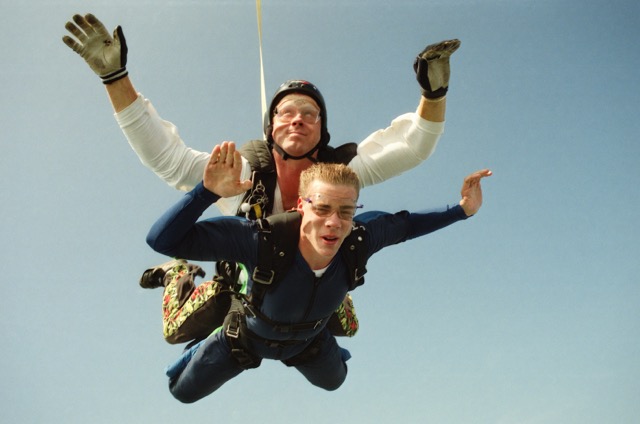
- Another factor that can affect the perceived pain level of skydiving is the landing. While modern parachutes are designed to provide a gentle and controlled descent, it is possible to have a less-than-perfect landing. Landing too hard or with improper technique can result in some discomfort, such as jarring your knees or ankles. However, with proper training and instruction, the chances of experiencing a painful landing are significantly reduced. It’s essential to follow the guidance of your instructor and execute the proper landing techniques to ensure a safe and comfortable touch down.
- It’s also worth noting that the level of pain experienced during skydiving can vary from person to person. Some individuals may find the overall experience to be more uncomfortable or overwhelming than others. Factors such as individual pain tolerance, fear of heights, and overall physical fitness can all play a role in how someone perceives the level of pain during a skydive. It’s crucial to be aware of your own limitations and communicate any concerns or discomfort to your instructor before and during your jump.
Does It Feel Like Falling When Skydiving?
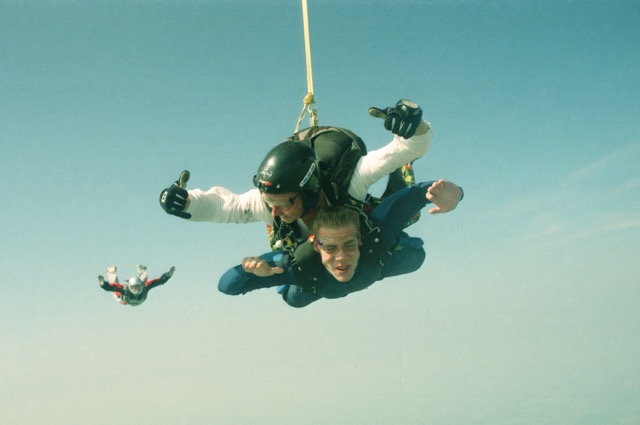
Skydiving is an exhilarating and adrenaline-pumping experience that many people dream of trying at least once in their lives. As a first-time skydiver, one of the burning question on your mind might be, “Does skydiving feel like falling?” The short answer is no, it doesn’t feel quite like falling in the traditional sense. Let’s dive deeper into the sensations and feelings you can expect when you take that leap of faith from a perfectly good airplane.
Unlike falling, where you have no control over your descent, skydiving gives you a remarkable sense of freedom and control. As you step out of the aircraft, you’ll feel an initial rush of wind against your body. It might feel like being pushed by a strong gust or experiencing a sudden drop, but it’s important to remember that this sensation is only temporary.
Once you stabilize your body position and open your parachute, the feeling of falling will quickly dissipate. You will experience a gentle deceleration as the canopy catches the air and slows down your descent. This is when the real magic happens. The previously intense rush is replaced by an overwhelming sense of serenity as you glide through the sky like a bird.
- Firstly, the safety measures put in place by professional skydiving instructors ensure that the experience is as secure as possible. Before your jump, you will undergo thorough training to familiarize yourself with the equipment, procedures, and safety protocols.
- Secondly, the adrenaline and excitement coursing through your veins with each passing second help to distract from any fear of falling. Your focus will shift from the sensation of descent to absorbing the breathtaking scenery below.
- Lastly, the human brain has a remarkable ability to adapt and normalize new experiences. As you spend more time in freefall, your brain begins to interpret the sensation differently, making it feel less like falling and more like floating or flying.
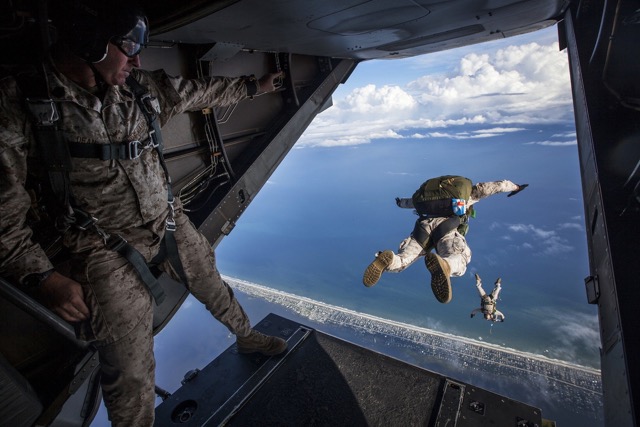
In summary, while skydiving may initially feel like falling due to the rush of wind and acceleration, this sensation quickly transforms into one of freedom and exhilaration. The feeling of descending is replaced by a sense of control and peace as you soar through the sky. The unique combination of safety measures, adrenaline, and the brain’s ability to adapt contributes to an unforgettable skydiving experience that will leave you wanting more.
| Pros | Cons |
|---|---|
| Unforgettable experience | Initial rush may be overwhelming for some |
| Sense of freedom and control | Requires overcoming fear of heights |
| Breathtaking views from above | Can be expensive |
| Boosts self-confidence and courage | Weather conditions can affect availability |

